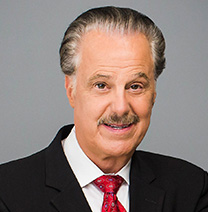Israeli Prime Minister Benjamin Netanyahu and Defense Minister Israel Katz visited the Golan Heights on Sunday following the dramatic collapse of the Syrian government led by President Bashar al-Assad and the capture of Damascus by rebel forces, including the Sunni Islamist group Hayat Tahrir al-Sham (HTS).
The leaders toured the Mount Bental area, near the Syrian border, where they received a briefing from IDF Northern Command Chief Maj. Gen. Uri Gordin.
After the briefing, Netanyahu called the events in Syria a “historic day” for the Middle East, acknowledging both the opportunities and dangers presented by the fall of Assad’s regime. He asserted that Israel’s actions, particularly against Hezbollah and Iran, had played a role in the regime’s downfall, which he described as triggering a broader desire for freedom in the region.
Katz, meanwhile, described the collapse as a significant blow to Iran’s influence, calling it part of the broader “axis of evil” that aims to destroy Israel. He also emphasized Israel’s commitment to securing the Golan Heights, vowing to prevent a return to the situation that existed on October 6, when the region was a flashpoint during the Yom Kippur War.
Despite recognizing the potential benefits of Assad’s collapse, Netanyahu warned of new threats arising from the shifting dynamics in Syria. He specifically cited the end of the 1974 Separation of Forces Agreement between Israel and Syria, noting that the Syrian army had abandoned its positions. In response, Israel had moved to secure certain areas along the border to prevent hostile forces from taking control.
Netanyahu confirmed that the Israeli army was ordered to take over Syrian positions near the border and described this move as a “temporary defensive position” until a more lasting solution could be found.
The prime minister also expressed a willingness to extend peace to groups in Syria, including Druze, Kurds, Christians, and Muslims who seek peaceful relations with Israel. He referenced Israel’s humanitarian efforts during the Syrian civil war, including “Operation Good Neighbor,” which provided medical care to thousands of injured Syrians.
Netanyahu reiterated Israel’s readiness to defend its borders but also reaffirmed the country’s desire for peaceful relations with Syria’s emerging forces.
